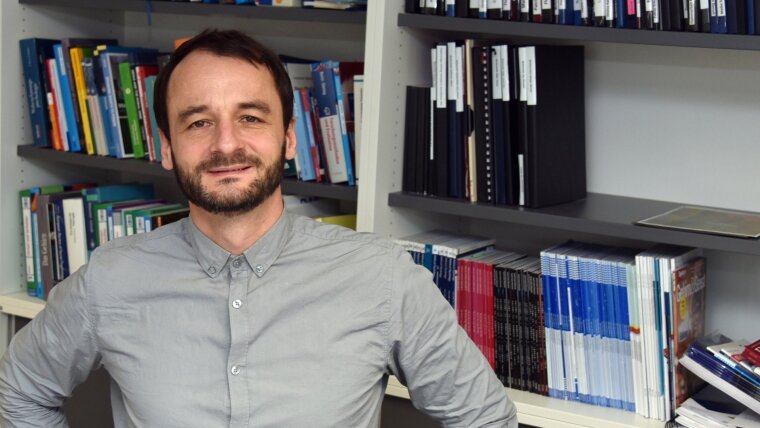
- Liberty
Published: | By: Ute Schönfelder
Source article
The results of the last European elections clearly showed that right-wing parties are on the rise. They made gains in numerous EU member states. High vote shares for right-wing parties are also expected for the upcoming state elections in some German federal states. These figures indicate that more and more people not only tolerate right-wing populist and radical right-wing ideas, but also share and support them. Psychologist Prof. Dr Tobias Rothmund from the University of Jena and psychologist Prof. Dr Eva Walther from the University of Trier explore the reasons for this in their book "Psychologie der Rechtsradikalisierung" (Psychology of Right-Wing Radicalization), which has just been published.
Together with a large number of scientific experts, they analyse the dynamics of individual radicalisation as an interplay of motivational, ideological and behavioural factors. According to the authors, the fact that populist and right-wing extremist positions are increasingly gaining a hearing is due, among other things, to growing economic inequality, scarcity of resources and overlapping international crises, which many people perceive as a threat.
Simple solutions only seem to offer relief
"Right-wing extremist ideologies offer simple solutions to such experiences of loss and disadvantage," says Tobias Rothmund. The professor of communication and media psychology refers to the frequently emphasised idea that "everything was better in the past" and that a return to traditional lifestyles would make the problems disappear again. "Such interpretations relieve the individual by attributing responsibility to others, such as politicians or migrants, while at the same time strengthening their own self-efficacy. We can therefore speak of a kind of self-empowerment movement," Rothmund continues.
However, not all people are equally susceptible to radicalisation processes. The authors also address the personality differences that play a role in this. "People with authoritarian personalities are particularly susceptible to feelings of threat and tend to develop right-wing political attitudes," says Eva Walther, giving an insight into her own research. "At the same time, these individuals are particularly hostile towards people who question their norms and values."
Prevention approaches and their effectiveness
Possible prevention approaches and their effectiveness are also discussed in the newly published volume: The decision|ruling|judgement is that the needs and sensitivities of people who turn to anti-democratic ideologies must be taken into account. At the same time, the normative limits of the Basic Law must be defended and violations punished in order to counteract the creeping normalisation of anti-democratic ideology.
Tobias Rothmund, Eva Walther (eds.): Psychologie der Rechtsradikalisierung. Theorien, Perspektiven, Prävention (2024), ISBN 978-3-17-043997-9
by arrangement, by e-mail via Ms. Junold